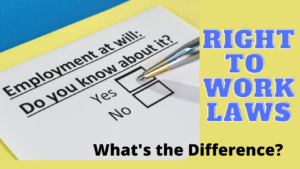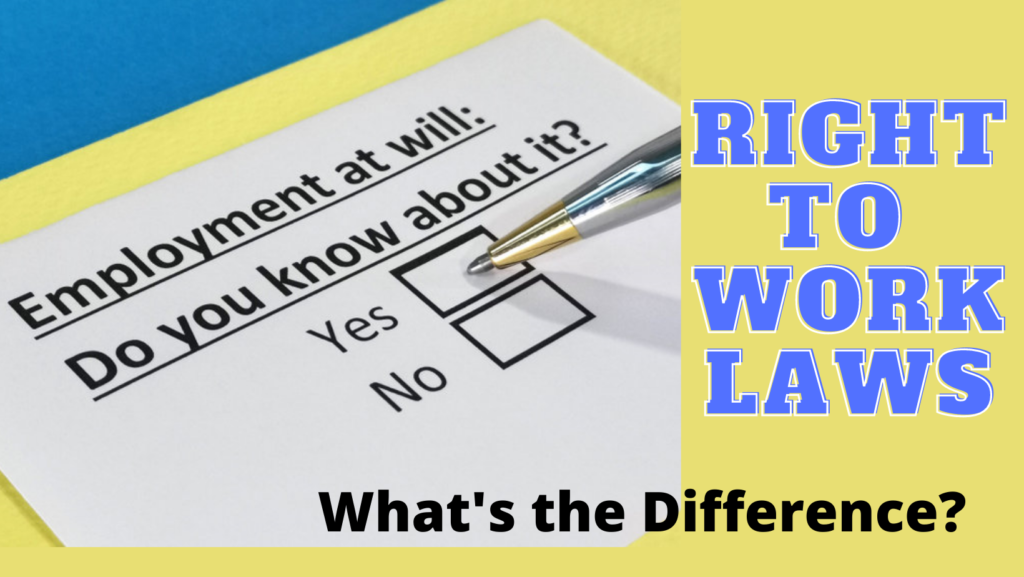Did you know that the phrase “right to work” does not mean the same thing as “at-will” employment? Many people confuse these two concepts, and understandably so, but in reality, the phrases represent two very different things, and both can affect your employment. The information below will help you learn the difference so that you can be correctly informed of your employment rights.

At the outset, it is important to note that “right-to-work” laws only apply to workers who work in unionized settings. Many people believe that living in a “right-to-work” state means that their jobs are protected. However, that is not necessarily the case.
“Right-to-work” laws originated from an act passed by Congress which gave states the option to adopt these laws which regulate the relationship between unions and employers. These laws prohibit employers from contracting with unions to require union membership for all employees. As such, in states that have adopted the “right-to-work” laws, union membership and payment of dues cannot be conditions of employment or requirements for continued employment. Essentially, “right to work” laws prevent unions and employers from forcing employees to join a union out of fear of losing their job.
Is Florida a Right-to-Work State?
Yes, Florida is one of many right-to-work states in the U.S.
What Does It Mean to Be an At-Will Employee?
In contrast, the concept of at-will employment typically applies in non-union settings. Employment at will is the default rule in every employment relationship unless you have an agreement to the contrary.
At-will employment means that your employer does not need to give you advance notice or have “cause” for firing you. You can be let go for any reason, so long as the reason is not illegal.
Federal and state laws protect all employees, even at-will employees, from wrongful termination because of discriminatory or retaliatory reasons. For example, your termination cannot be based on discrimination because of a protected characteristic (race, gender, color, national origin, religion, disability, age, citizen status, or other characteristics recognized by law) or because of retaliation for complaining about unlawful discrimination or illegal practices of the employer.
Employment at will essentially means that your employment is consensual and that either party can end the employment without notice, at any time for (almost) any reason.
What This Means for You
The concepts of “right to work” and “at-will” are not interchangeable. Although Florida is a “right-to-work” state, your employment is most likely “at-will” meaning that your employer can terminate you for any legal reason. The “right to work”, however, guarantees that employees in unionized workforces have the choice to become a union member and pay dues or to refrain from doing so without facing any adverse employment action from their employer. It is important to know the meanings of each of these concepts so that you are aware of the extent of your employment rights.
If you feel you have been wrongfully terminated, please consider discussing the matter with an experienced employee rights attorney like those at the Sass Law Firm, as soon as possible as strict deadlines may apply to your claims.

